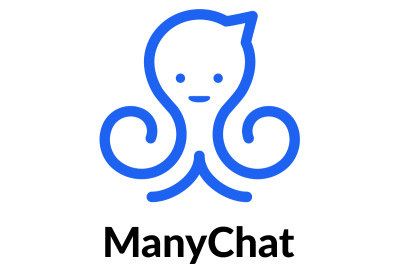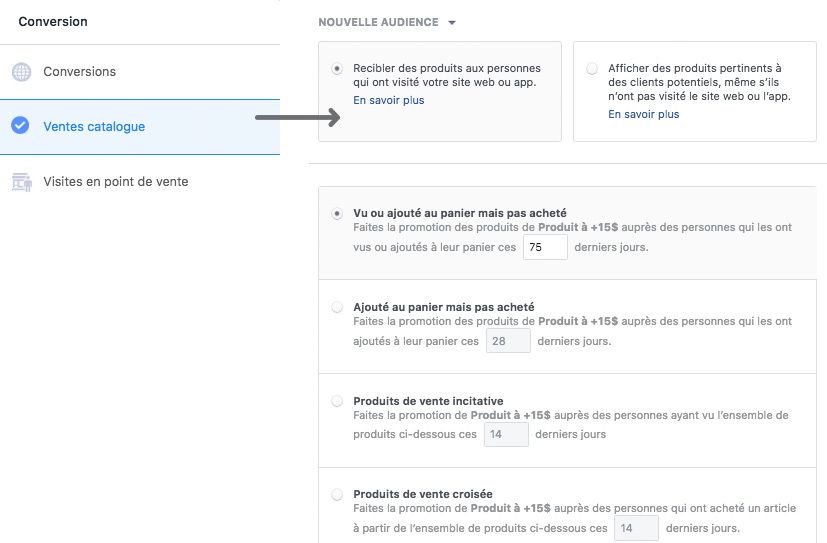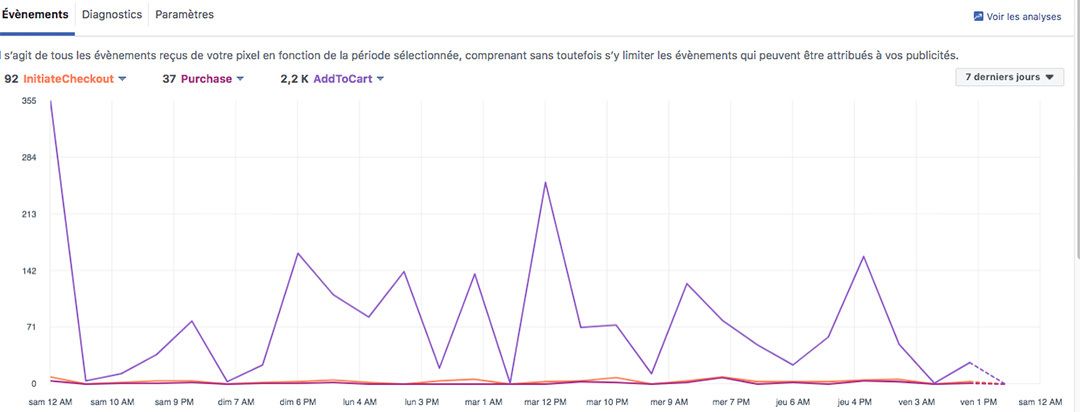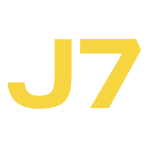Curious to know how to scale your Facebook Ads over $1,000/day? Get our experts' recommendations for free! All our clients went through this step!
7 frequently asked questions about Facebook Ads & Advertising
7 Frequently Asked Questions About Facebook Advertising
As a Facebook agency, we're often asked about best practices during our Lives, client meetings or consultations.
Seeing that the same questions kept coming up, I decided to gather them together in this article and spare you the stress and confusion!
As a Facebook agency, we're often asked about best practices during our Lives, client meetings or consultations.
Seeing that the same questions kept coming up, I decided to gather them together in this article and spare you the stress and confusion!
In order to get your adrenaline pumping, we’ve ranked the questions by popularity, from the least asked to ... well, the one lining the walls of our offices.
#1 What tools should I be using in addition to Facebook?
We'll start with a slightly more technical question (the least popular of the 7), but one that's very important once you are familiar with Facebook advertising.
The question is: what are the tools that can be used to boost sales, but that are not offered by Facebook on its platform?

A - Messenger: ManyChat
We talked a lot about it in 2017 (when it burst onto the scene) and ManyChat’s little octopus continues to perform well on Facebook Messenger.
Concretely, ManyChat allows you to:
- Build a subscriber database on Messenger (like an email database, but on Facebook).
- Create a Chat bot much more easily than on Facebook (which would require some coding skills).
- Send a message to people who comment on your posts (to be used in moderation so as not to risk a Facebook penalty).
Messenger remains a highly performant type of campaign because users like to interact with a real person on the platform.
ManyChat is free and easy to set up on your Facebook page; there really is no excuse not to use it.

B - Creating a Funnel
We talk about the Funnel as a way to:
- Create and promote a lead magnet.
Create sales pages.
- Sell products, services, and subscriptions directly.
Much easier to set up than a website (and much more flexible), the funnel’s main goal is to attract and convert traffic.
To do this, we recommend two platforms.
The first is Instapage.
Instapage is highly accessible and hyper fluid in how it builds and modifies pages. It is ideal for people who are new to Funnels.

Then we have the famous Click Funnels.
Propelled by Funnel guru Russel Brun, Click Funnels aims to be the industry standard. Though it offers more possibilities (including the integration of a payment / subscription system), it also is more technical.
C - Creating a product catalog
Have you seen the Facebook ads that dynamically show you the products that you looked at 10 minutes earlier on an e-commerce website?
You can easily set these up using applications made specifically for your type of e-commerce website:
Flexify is the best application to use if you have a Shopify website.
Facebook Ads Extension works well for BigCommerce.
These two apps give you the ability to create highly effective retargeting campaigns for anyone who has seen or added products to their shopping cart without purchasing.

#2 How do I know if my Facebook Ads are working?
To find out if your Facebook ads are working, you have to ask yourself two questions:
- What am I expecting from my Facebook advertising campaigns (based on my campaign objective and my audience)?
- Am I giving Facebook the opportunity to follow through on and track actions that are important to me?
Let's start with advertising!
You choose an objective for your Facebook campaign: awareness, reach, traffic, Messenger, conversions, etc.
All of these objectives have key performance indicators of their own. To know which ones to track, I invite you to read our article on the subject.

At this point, you already know if your ads are generating clicks, interactions, video views, etc., However, this should be taken with a grain of salt, as the audience also has a significant impact on your campaign’s results.
We tend to think that a retargeting audience (having already visited your website) will click on your promotional ad more often than an audience who's unfamiliar with your products or your brand.
Conversely, your ads will have a much higher frequency on your retargeting audience than on a cold acquisition audience (because the volume of people to target is not the same).
Now, let's talk about Facebook and your website.
You generate traffic to your website through Facebook campaigns, but what about sales?
To find out if you are generating sales from your Facebook ads, you need to set up a Facebook Pixel on your website as soon as possible, as well as the actions that matter to you:
Add to basket
Payment initiated
Account creation
Purchase (value of the purchase)
Etc.

The goal is to find the last piece of the puzzle: are my Facebook marketing efforts delivering results for my business?
A $10 cost per click might seem expensive, but if it eventually earns you $150 per click every single time, it's more than worth it!
Of course, if you do this exclusively through Messenger, phone calls, or other less traceable channels, you will have to do the monitoring yourself.
Additionally, if you want to know more about optimizing a conversion campaign, have a look at our article here.
In short, to know if your campaign is performing, you need to take into account:
The objective of the Facebook campaign
Indicators specific to this objective
The audience being use
Your final objective
#3 Where should I redirect the Audience with my Ads?
This question is almost on par with #2 (although, logically speaking, it should be asked first).
The natural consequence of your advertising campaign: you capture attention—maybe even a lot of attention!
But where should it be directed?
- To a website → Traffic, Conversion
- To your Facebook page → Traffic, Likes
- To Messenger → Messenger Conversion
- Etc.
Indeed, the large number of Facebook campaign objectives available can quickly make you doubt yourself and even paralyze your project. To resolve this issue, answer these 2 questions:
- What do I want from my audience?
- I want them to visit my store.
- I want them to buy my products / services.
- I want to grow my community.
- Etc.
What resources do I have?
- Do I have a reliable website that is conductive to conversions?
- Do I have time to spend on Messenger and answer everyone's questions?
- Does my Facebook page publish interesting content on a regular basis? Is it enough to convince a prospect to become a customer?
- Etc.
For example, it is counterproductive to direct traffic to a website that cannot take orders or payments. It would be better to simply display your products on Facebook and to reach out to the individual on Messenger or by phone to discuss their needs and your offer.
Always remember that in order to sell on Facebook, you need to establish a "path" that takes your prospect from when they first discover your business to when they make a purchase. Should the path end abruptly, it is difficult to imagine a potential customer voluntarily choosing to take any further action.
#4 Which format should I choose for my Facebook Ads?
This is a question that is often asked in haste before starting, but it’s an important one.
We could reword it this way : Image or video—which do we choose?
There’s no magic formula or right answer: you have to do some testing.
I would also like to remind you that a video doesn't need to be of high technical quality to be valuable; you can use a decent smartphone to shoot it.
Some of our clients make videos with a webcam or smartphone to speak directly to their customers and it works.
Videos are also a good strategy for retargeting. Unlike with images, you can create an audience based on the portion of the video watched by a user so that you can retarget them later.
But, often, image has proven to be more powerful than video, so which is the wiser route is impossible to answer definitively.
#5 How do I choose my Facebook audience?
Now this is a question that stands out from the others!
Indeed, the choice of audience is very important, especially when you have a low budget that doesn’t allow you to test multiple parameters.
It’s a question that is difficult to answer for the following reason: Facebook likes volume.
All major marketers on the platform will tell you the same thing - Facebook prefers when there is a large number of people in the audience.
This volume gives Facebook the chance to put its learning algorithm to work and to optimize campaigns as best as it can.
Between an audience of 240,000 people and one of 10,000, the best advice I can give you is to take the former, but that won't necessarily work for every business.
A restaurant downtown doesn't have the same needs as a national e-commerce business. So, maximize your volume, while remaining consistent to your activity and your campaign objective.
Then, if you have a larger budget, test two audiences at the same time:
- A rather large one with few interests (> 200,000 people)
- A very small one (<80,000 people) with many interests specific to the target
This allows you to see which one will be the fastest at finding your target customer, and whether you should really rely on the interests suggested by Facebook.
Beware, however, of audience “overlap” which could artificially increase your costs.

In regards to interests, demographics, etc., you should already have a pretty good idea based on:
- Your experience with the customer
- Your knowledge of the industry
- Your Google Analytics
- Your Facebook account (page and advertisement)
- Your scope of activity (for geographical criteria)
Finally, as with the previous question, there is no single, right answer. Just try to be logical and realistic.
#6 How long do I have to wait to find out if my campaign is performing?
This is a tough question for advertisers, as there's nobody on Facebook to tell you when to stop or to continue a campaign.
We somewhat broached the topic with question #2, but without answering it completely.
Time is, on some level, a condition. Meaning that Facebook, with its pixel and events, provides a conversion window of 1 to 7 days for your audience to take a specific action.
Let's further illustrate this concept with an example:
- I click on an advertisement on Monday, without making a purchase → Facebook does not report a purchase on Monday
- I return to the website on Wednesday and make a purchase → Facebook will attribute the sale to your campaign, but it will be counted towards Monday rather than Wednesday
That is because your conversion window is 7 days and I have not gone beyond that window.
Essentially, if you launch this type of campaign, wait until your conversion window closes (7 to 14 days) before making a decision.
Then, and what in my opinion is the most important, there is the data.
Generally, I would wait for my ads to reach 4,000 to 8,000 people before making a decision. Of course, if the metrics show catastrophic results, I would not wait that long.
Earlier, we mentioned a learning algorithm.
"Learning" means that Facebook is performing tests to find the best way to deliver your ad set; you should therefore give it some space to carry out these tests.

In fact, Facebook asks that, each week, you let it get at least 50 conversion events so that it can optimize. Any less and you will not be taking full advantage of its algorithm.
And how do you achieve these 50 conversions?
I assume that you have some sort of idea of what the answer is… that’s the subject of the last question!!
#7 What budget should I allocate to Facebook?
Here we are: the most popular question about Facebook advertising!
The crux of the matter, and rightly so.
I will specifically address the situation of people that are just starting their activity on Facebook and have a national reach (an e-commerce business).
To run a cold acquisition campaign (lead magnet, traffic, Messenger, etc.), I would not allocate less than $10/day and per audience, and that with a maximum of 3 ads per audience.
For a retargeting campaign (which happens shortly thereafter, and sometimes before), I would not allocate less than $5/day and per audience.
You are looking at a minimum of $15-20/day, so a maximum of $620 per month.
It is a significant budget, but if you don’t give yourself the means you will never be able to keep up with the competition.
It’s also important to understand that the more budget you allocate to your campaigns, the sooner you will be able to determine whether or not your campaign is performing and profitable.
This is another significant advantage of digital marketing. We patiently await the data, while money facilitates its transport.
To further your understanding, read our article "In the head of a Facebook advertising pro."
PS If you want to know the performance level of your Facebook ads, let our experts analyze your Ads Manager. They'll evaluate according to the following 10 criteria:
Traffic on your website
Conversion pages
Parameters
Audiences
Copywriting
Creative
Sales Tunnels
Avatar
Target messages
Products made for Facebook

